Prime Minister Pedro Sánchez Has Cool Glasses
What was supposed to be a scandal became a masterclass in distraction.
Si quieres leer esta edición en español, suscríbete al canal de WhatsApp de LatAm Explained en español.
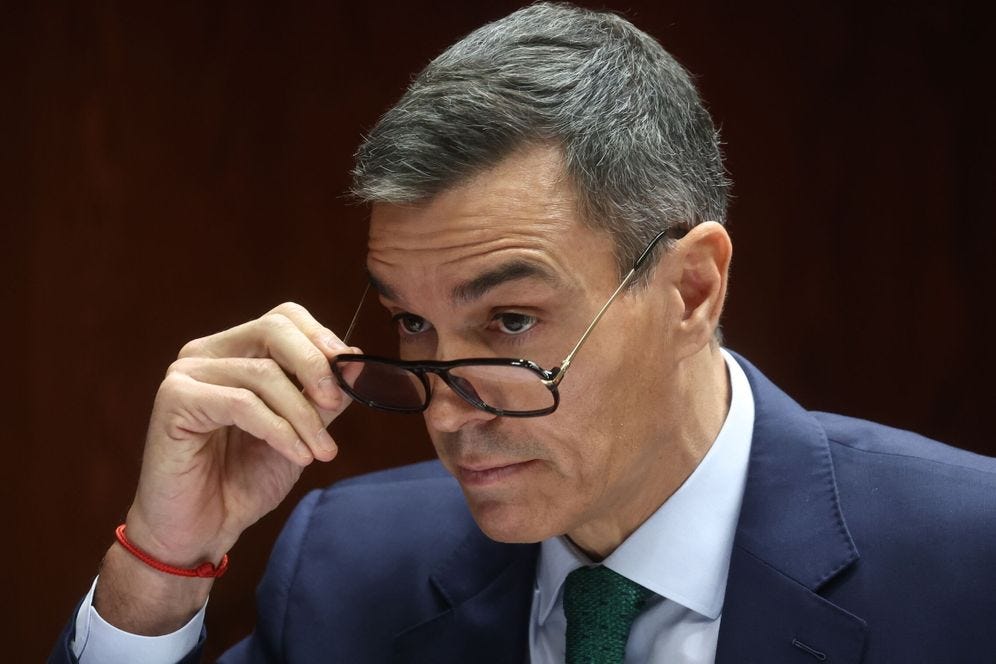
This newsletter covers Latin America, so starting with Spain might seem off. But if you look closely, many of our political habits began there. We inherited more than language or religion. We also learned a certain way of relating to power: a fascination with charisma, a tolerance for personalism, and the idea that politics is as much about performance as about governing. That’s why Pedro Sánchez, Spain’s prime minister, feels so familiar to us.
Sánchez is the kind of leader who splits opinions, even among his supporters. Some say he is opportunistic, self-centered, or just lucky, but it’s hard to deny he’s one of the smartest politicians of his time. His career is full of comebacks: he was pushed out by his party, embarrassed by the press, and then returned to lead Spain twice. He has survived broken alliances, corruption scandals, and internal party fights thanks to good timing, bold moves, and a talent for shaping the narrative.
The Spanish prime minister was called to speak before the Senate to explain a growing corruption scandal linked to government contracts given to businessmen close to his party. It was supposed to be a big moment: the opposition, led by the conservative Partido Popular and the far-right Vox, had been saying this was when Sánchez would finally be held responsible. Instead, it became a masterclass in political optics. Literally. All anyone could talk about afterward were his glasses.
Halfway through the hearing, Sánchez put on a pair of oversized black Dior frames. By the next morning, Spanish media and social networks were filled with memes, comments, and fashion discussions. What should have been a serious debate about corruption and political deals became a national obsession with his accessory. Supporters saw the eyewear as a sign of calm, boldness, and style under pressure. Critics saw them as a sign of arrogance, saying the prime minister was more focused on his image than on answering questions.
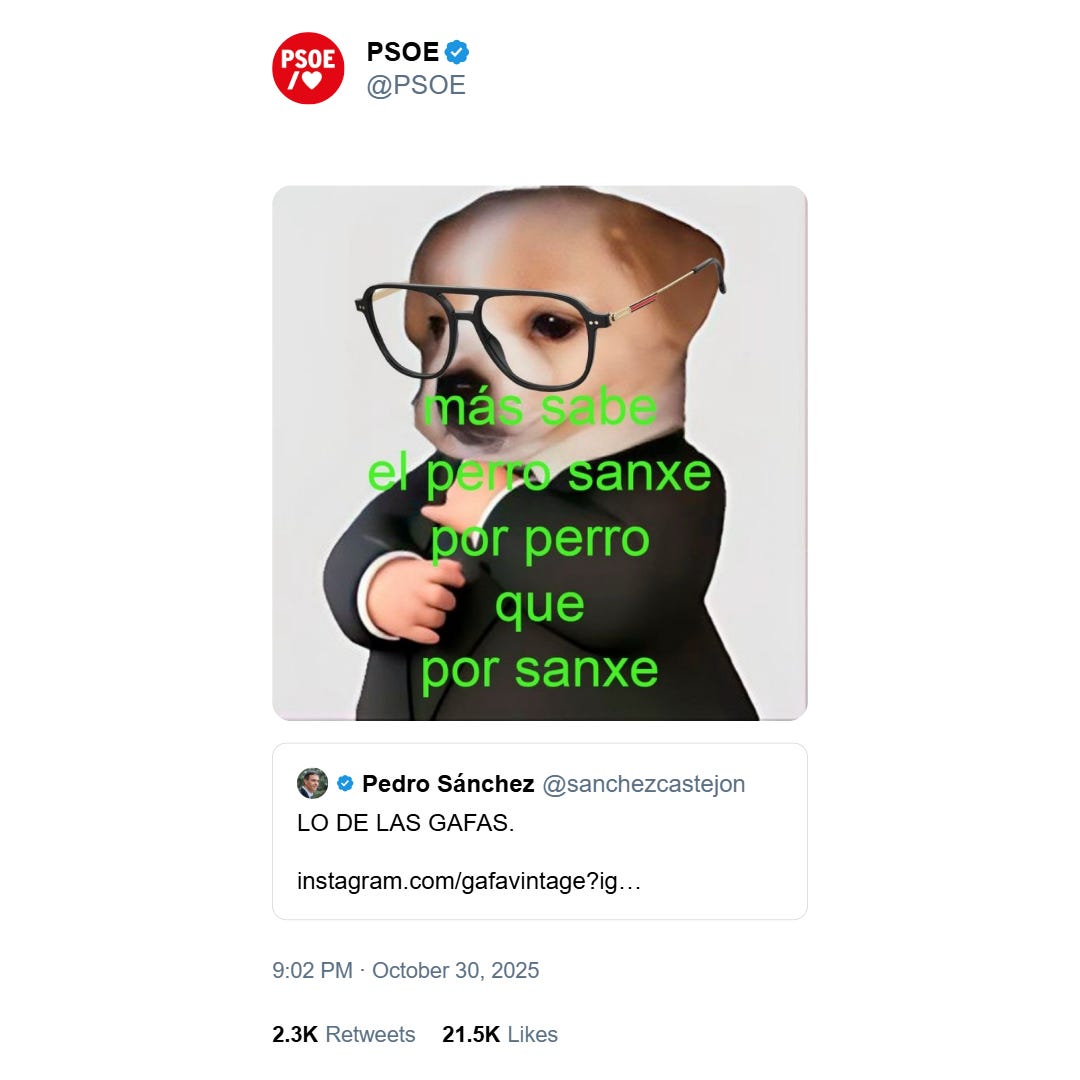
That reaction is very Spanish, and also very Latin American. It shows the ability to turn weakness into style. Politics is not just about making decisions, but also about putting on a show. Sánchez has survived by following that instinct: knowing when to fight, when to charm, and when to seem calm.
You don’t have to admire Sánchez to learn something from him. Whether you see him as a trickster or a genius, he shows that in today’s politics, public perception is not just a bonus; it is the main thing. The glasses are only a symbol. The real story is how he keeps moving forward when others expect him to fail.
Mexico Welcomes Spain’s Gesture on Colonial History
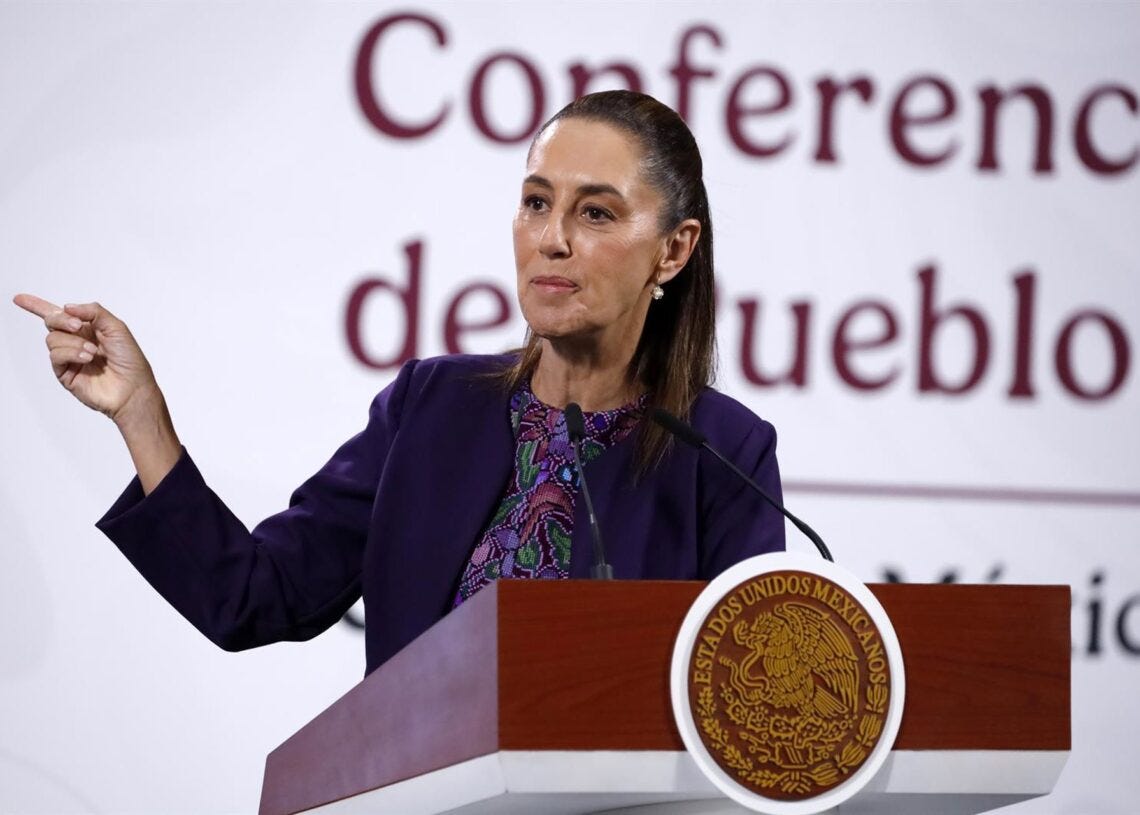
This time, the debate over Spain’s colonial past started with an acknowledgment instead of a demand. At a cultural event in Madrid, Spain’s foreign minister José Manuel Albares openly recognized the “pain and injustice” caused to Indigenous peoples during the conquest of Mexico, saying it was right to “lament it today.”
President Claudia Sheinbaum welcomed the remarks the next day, calling them “a first step” and “an act of historical honesty.” She said this was a chance to move from confrontation to understanding, and added that recognition does not weaken nations but instead dignifies them.
Still, there is a clear irony. Latin American leaders often use colonial guilt as a moral cause, but many still neglect or exploit Indigenous peoples in their own countries. Former president López Obrador demanded an apology from Spain in 2021, while Sheinbaum now welcomes one that was never formally given. Both are right to address the past, but the real reckoning is not finished yet.
While Mexico talks about injustices from the 1500s, more than 16.9 million Indigenous Mexicans still face unfair treatment today. Almost half do not finish elementary school, one in five cannot read or write, and most start working before age twelve, according to El Mundo Indígena 2025. Five hundred years later, the real problem is not Spain’s silence, but the lack of action from Latin American leaders.
Brazil: A Raid Without Accountability
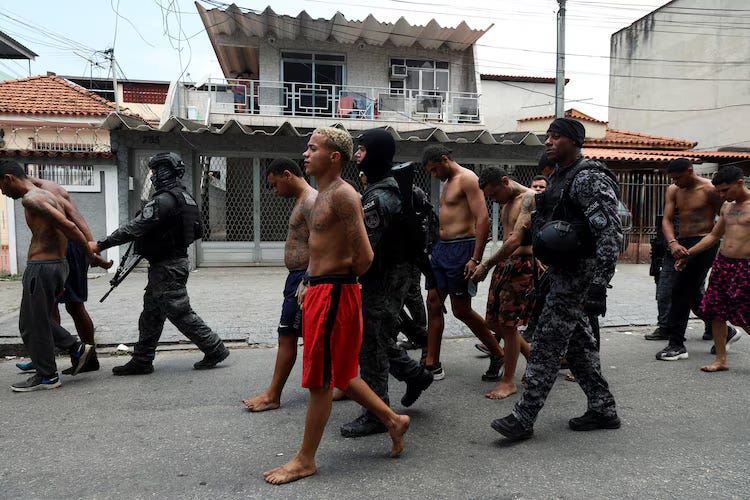
This week was one of the darkest in Brazil’s history. Over 100 people lost their lives during a police operation in the favelas of Rio de Janeiro, making it the deadliest ever in the country. Officials said the raid was aimed at the Comando Vermelho gang, but people living there felt it was more like a massacre. In response, families carried the bodies of their loved ones into the streets, asking for answers about why they were killed.
Some international commentators blamed President Lula, but that misses the main point. The operation was not run by the national government, but by the Rio state police. In Brazil, each state is responsible for its own public safety decisions. Still, Lula is under pressure to respond, facing the same problem as other presidents: how to back the police without supporting their violent actions.
Human rights groups and the UN described the raid as ‘extremely deadly,’ pointing to reports of torture and people being killed without a trial. Governor Cláudio Castro defended the police, saying everyone who died was a criminal. Sadly, this shows how often tragedies like this now happen.
Honduras: Elections Under Suspicion
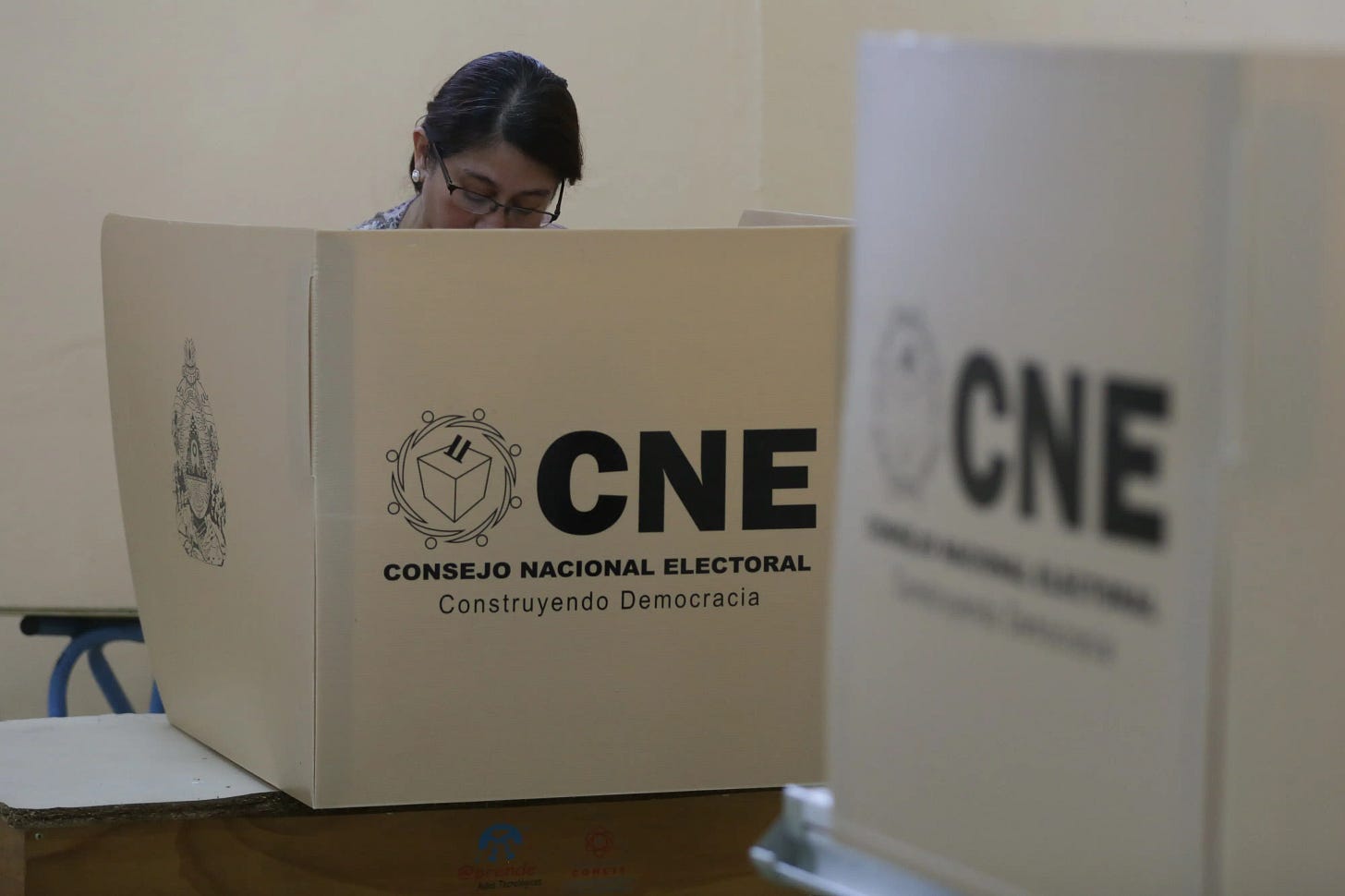
Honduras will hold elections at the end of November, but many doubt the process will be fair. Alleged leaked recordings have surfaced, supposedly showing opposition members and election officials planning to rig the results. The government called it an “electoral coup,” while the opposition claims the recordings are fake. So far, no one has confirmed if the audios are real, and both sides are using the story to support their own arguments.
Honduras is not often in the news, but this is a time when it should be. People have not trusted politics since the 2009 coup that took Manuel Zelaya out of office, and every election since then has made things worse. People still remember 2017, when protests over supposed irregularities led to more than 20 deaths.
International observers are expected, but new regulations forbid them from reporting in real time. In other words, transparency itself is being regulated. Honduras will vote, but the result may matter less than whether anyone believes it.
The Dodgers, Latin America, and the Game That Never Left Us
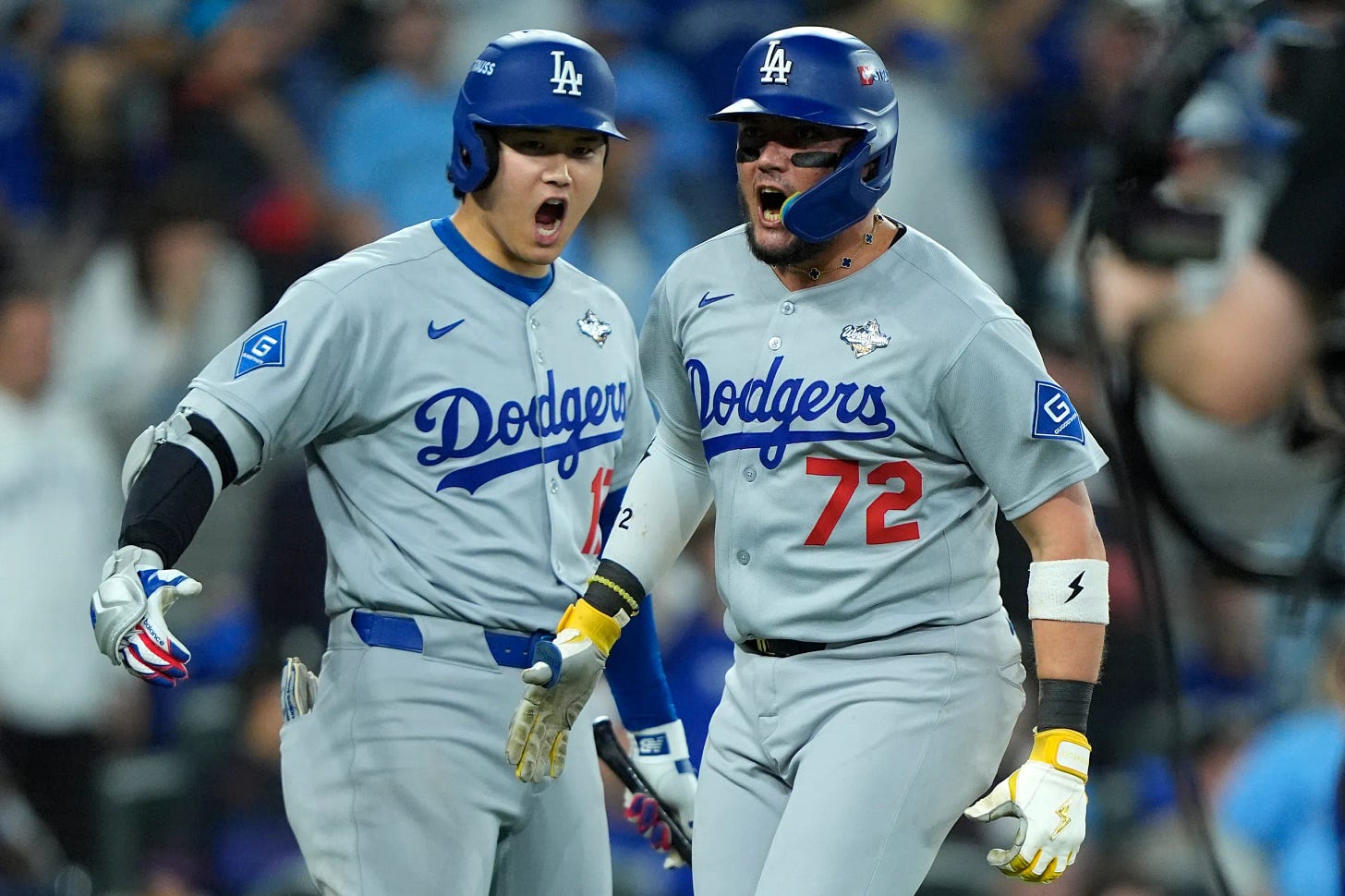
The Los Angeles Dodgers have won the World Series again, earning back-to-back titles for the first time since the Yankees did it in the early 2000s. Latin America was a big part of their success. Miguel Rojas, a Venezuelan shortstop who plays for La Guaira in the winter, hit a home run to tie Game 7 in the ninth inning and then stopped a run at home plate. If you don’t know baseball, imagine a football player scoring a late goal to tie the game and then saving a penalty right at the end of a final.
As a Tiburones de La Guaira fan, that moment meant a lot to me. Seeing Rojas, who wears the same colors I cheered for as a kid, succeed on baseball’s biggest stage felt like a win for all of us, no matter where we are.
I watched that game at 3 a.m., and someone asked why I was up watching “an American sport.” But for people in the Caribbean, baseball is more than just American. It belongs to us. It’s a shared language that brings together Cuba, Mexico, the Dominican Republic, Puerto Rico, Panama, Venezuela, and everyone from those places, no matter where they live now.
Baseball arrived in the Caribbean in the 1800s and has been part of our lives ever since. It’s something we take pride in, but it’s also a way to move forward. In places with few opportunities, the sport became one of the only real paths to a better life. A professional contract can help a whole family escape poverty, and a big league salary can change the future for an entire neighborhood.
If you want to see what that world is like, watch Ballplayer: Pelotero, a documentary filmed in the Dominican Republic. It shows what goes on behind the dream, and how skill, hope, and the need to get by all come together on every dusty field in the Caribbean.
So yes, I was up watching that game at 3 a.m. When Miguel Rojas hit that home run, it wasn’t just a win for the Dodgers. It was a win for La Guaira. It was a win for all of us.
That’s all for this week. If you liked what you read, please subscribe.
You’ll get something like this every Monday: one main analytical piece, three important stories from Latin America, and one media suggestion to help you learn more about our region.
You can also follow me on Instagram, X, and TikTok for more.
Gracias por leer. Hasta la semana que viene.


